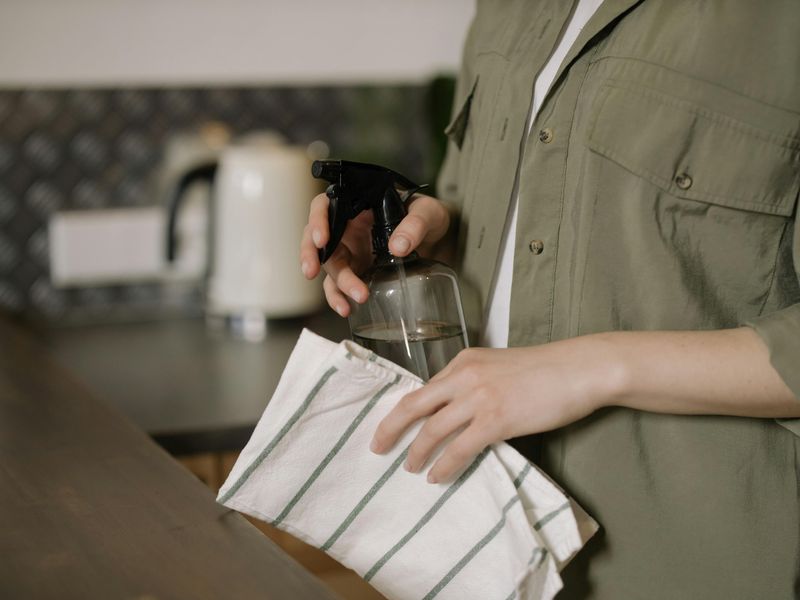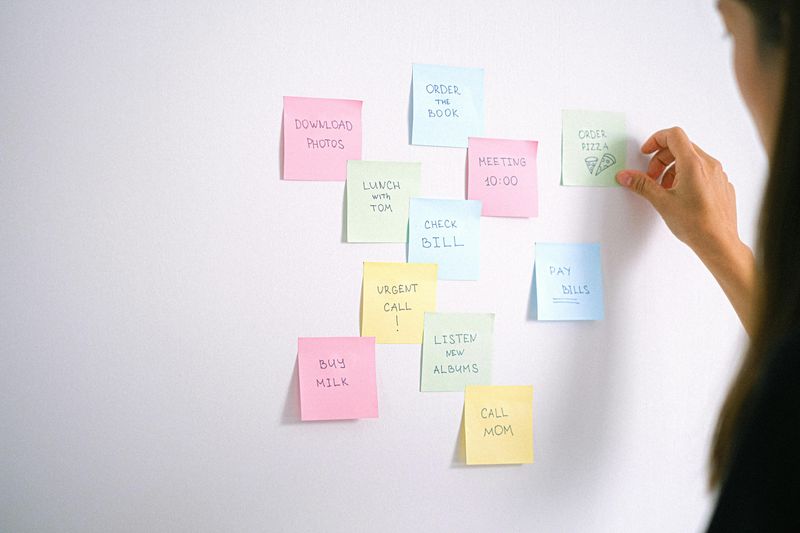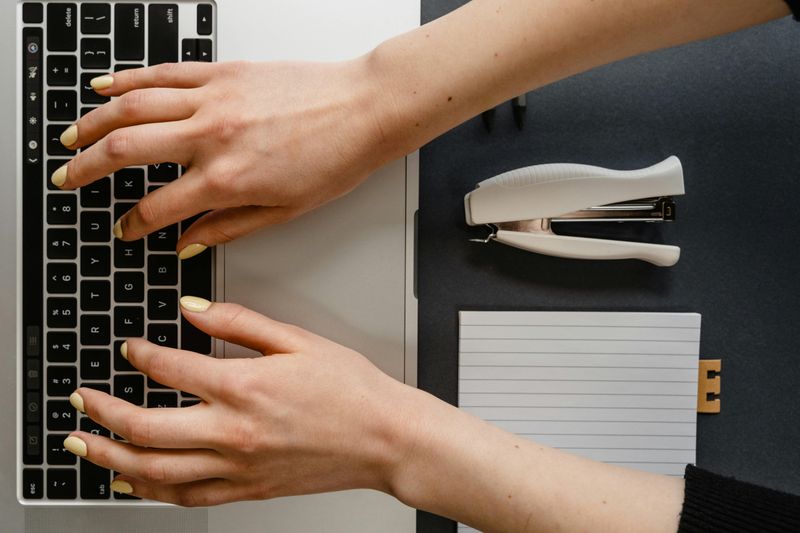Ever wonder how some people seem to have their lives together while the rest of us are scrambling to find our keys every morning?
Organized people aren’t born with a special gene—they just have a few simple tricks up their sleeves. The good news is that these habits are super easy to copy, and you can start using them right now to make your life less chaotic and more peaceful.
1. A Daily Brain Dump Routine

Writing down everything swirling around in your head might sound simple, but it works wonders. Organized folks set aside five minutes each morning or evening to jot down tasks, worries, and random thoughts on paper or in a notes app. This clears mental clutter and helps them focus on what truly matters.
Once thoughts are on paper, they become manageable action items rather than vague sources of stress. You can prioritize what needs immediate attention and what can wait. Many people find this practice so calming that it becomes their favorite part of the day, like hitting a reset button for the brain.
2. The Two-Minute Rule

If something takes less than two minutes, do it immediately—that’s the golden rule organized people live by. Whether it’s responding to an email, putting away shoes, or wiping down the counter, tackling tiny tasks right away prevents them from piling up into overwhelming mountains.
This habit saves hours of cleanup later and keeps spaces consistently tidy. The beauty of this rule is that it requires almost no planning or motivation; you just act. Over time, it becomes automatic, and you’ll notice your to-do list shrinking dramatically without extra effort or stress.
3. Everything Has a Home

Organized people assign a specific spot for every single item they own, from car keys to charging cables. When everything has a designated home, you never waste time hunting for lost things or creating clutter by tossing items randomly.
This system works because your brain learns where things belong, making cleanup almost effortless. You simply return items to their spots after using them. Start small by organizing one drawer or shelf, then expand the system throughout your space. You’ll be amazed how much calmer your environment feels when everything knows where it belongs.
4. Weekly Planning Sessions

Sunday afternoons or Monday mornings become sacred planning time for organized individuals. They spend 15 to 30 minutes reviewing the upcoming week, scheduling appointments, planning meals, and identifying potential obstacles before they become problems.
This proactive approach eliminates last-minute panic and helps them stay ahead of deadlines. They check calendars, make grocery lists, and prep what they can in advance. Some people even lay out outfits or prep lunch ingredients during this time. The result? Smoother weekdays with fewer surprises and significantly less stress throughout the entire week.
5. Digital Decluttering Habits

Your digital space deserves the same attention as your physical one. Organized people regularly clean out their email inboxes, delete unused apps, and organize computer files into clearly labeled folders instead of letting everything pile up on the desktop.
They unsubscribe from newsletters they never read and turn off unnecessary notifications that constantly distract them. Many set a monthly reminder to do a quick digital sweep. This practice improves focus, speeds up device performance, and reduces the mental load of visual clutter. A tidy screen equals a tidy mind, making work and personal tasks much easier to manage.
6. One In, One Out Policy

Before bringing anything new into their homes, organized people remove something old. Buy a new shirt? Donate an old one. Get a new book? Pass along one you’ve already read. This simple rule prevents accumulation and keeps belongings at a manageable level.
The policy forces you to think carefully about purchases and value what you already own. It also makes cleaning and organizing much easier since you’re not constantly battling an ever-growing pile of stuff. Over time, this habit cultivates mindful consumption and helps you appreciate quality over quantity in everything you own.
7. Morning and Evening Routines

Bookending each day with consistent routines creates structure that organized people swear by. Morning routines might include making the bed, reviewing the day’s schedule, and eating a healthy breakfast. Evening routines often involve prepping tomorrow’s outfit, packing bags, and tidying common areas.
These rituals reduce decision fatigue and create predictable rhythms that make life flow more smoothly. When you follow the same sequence daily, tasks become automatic and require less mental energy. Starting and ending days with intention sets a positive tone and helps you feel more in control of your time and environment.
8. Batch Processing Similar Tasks

Rather than scattering similar tasks throughout the week, organized individuals group them together and knock them out in one focused session. They might answer all emails at specific times, pay all bills on one day, or meal prep several lunches at once.
Batch processing saves enormous amounts of time because you get into a rhythm and avoid the mental switching costs of jumping between different types of work. Your brain stays in one mode, making you faster and more efficient. This approach also frees up mental space during the rest of your week since you’re not constantly remembering small tasks.
9. Regular Decluttering Appointments

Organized people schedule decluttering sessions just like doctor appointments—they’re non-negotiable dates on the calendar. Whether monthly or quarterly, these sessions involve going through spaces systematically, removing items that no longer serve a purpose, and reorganizing what remains.
This prevents clutter from building up gradually over time and keeps spaces functional and pleasant. They tackle one area per session rather than attempting everything at once, which prevents burnout. Some people make it fun by playing music or inviting friends to help. The key is consistency—regular maintenance is far easier than massive overhauls when things get out of control.

Comments
Loading…